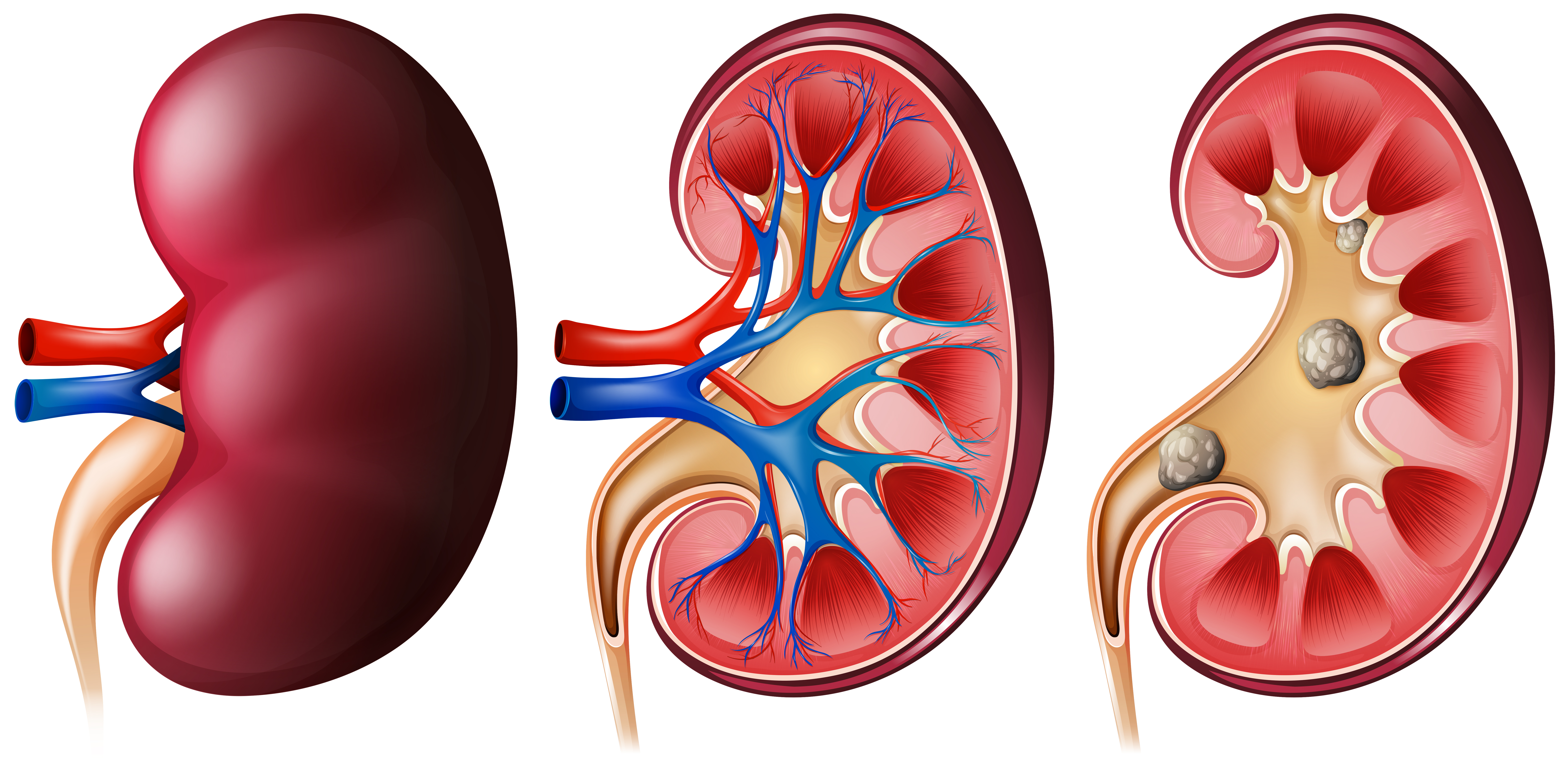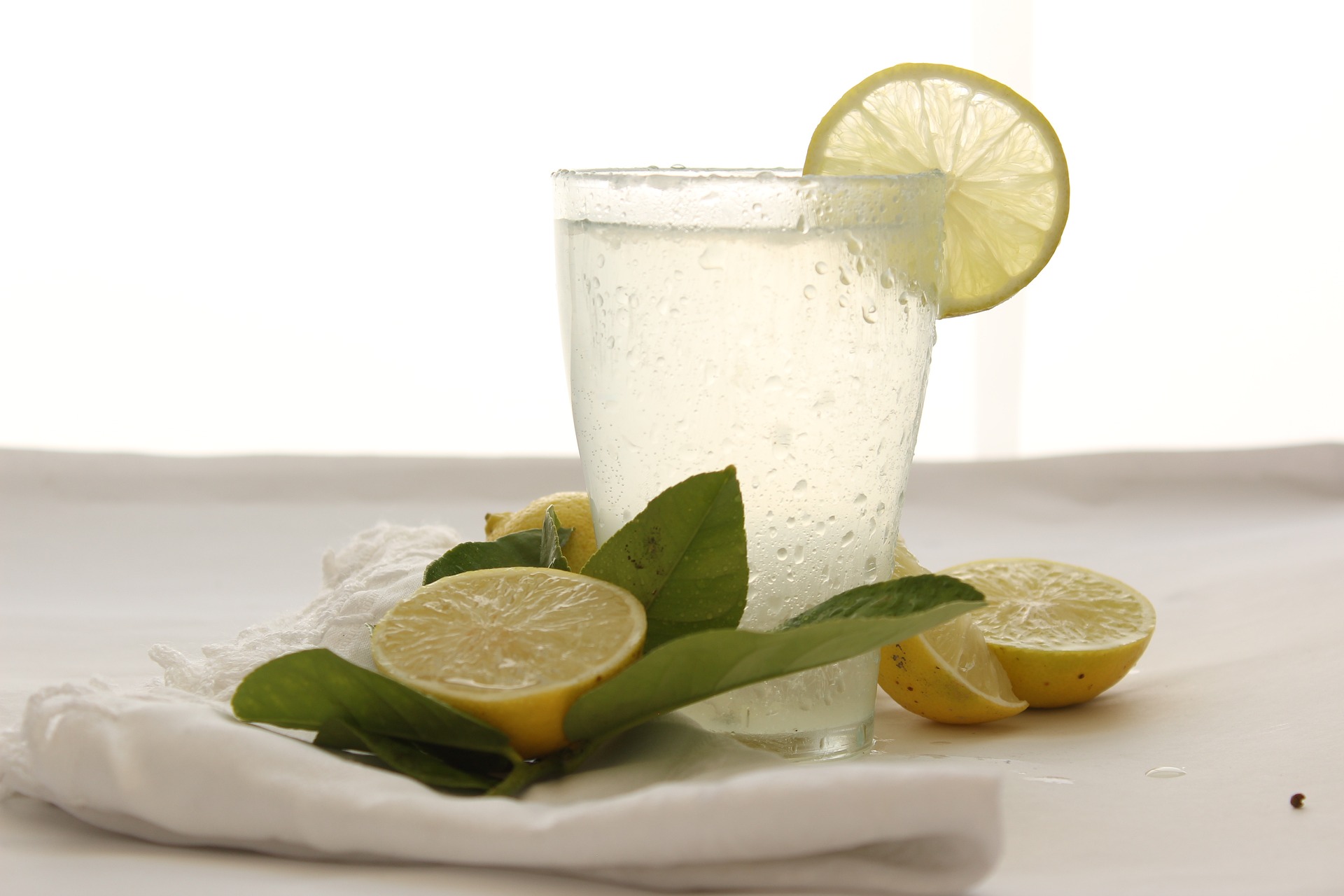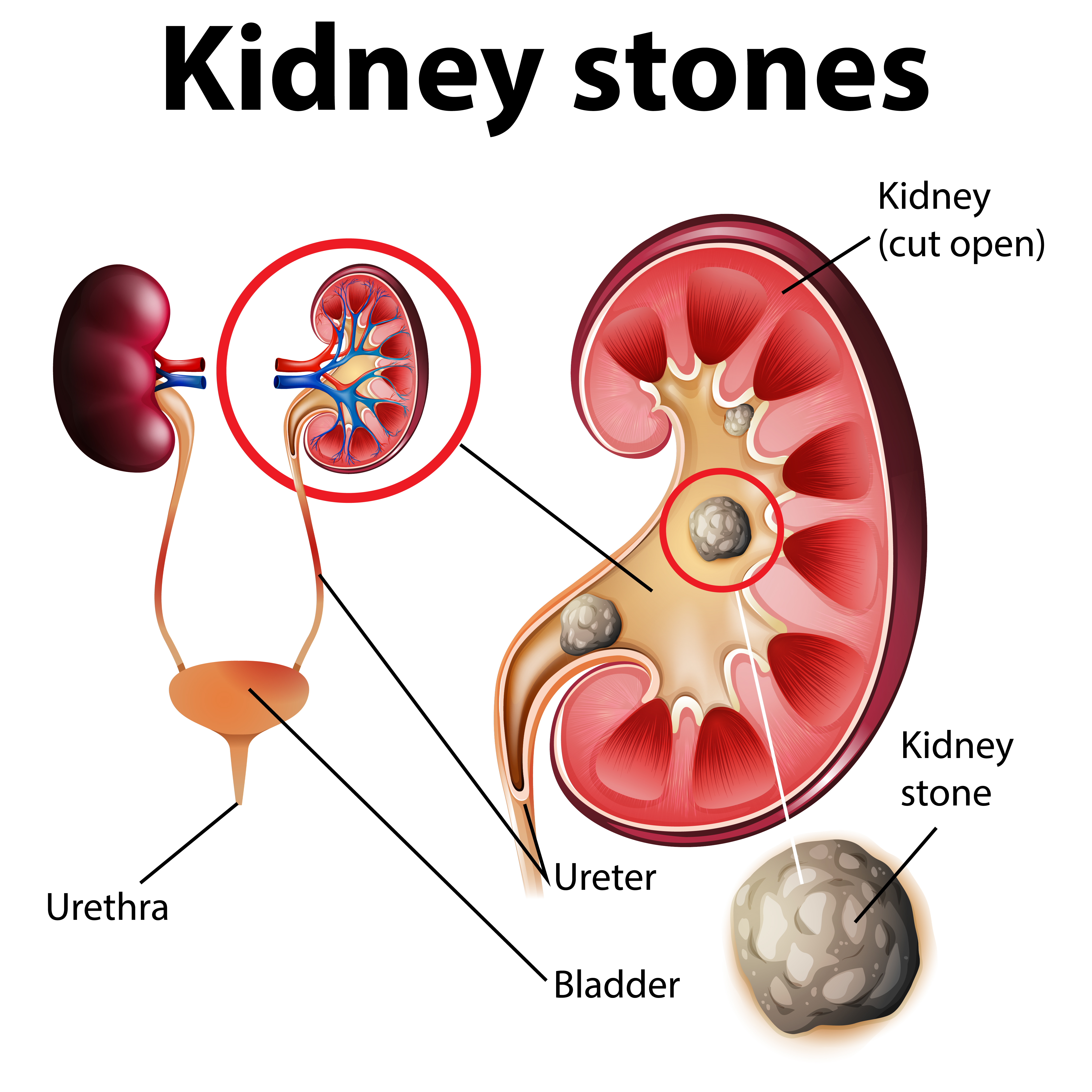



Drink warm lemon water daily. Lemon water inhibits kidney stone formation.
Cut three slices of lemon, place them in a glass and pour hot water over them.
The kidneys are filter stations, one could say, the sewage and water systems of our body. Among other things, they serve to excrete toxins and metabolic products, i.e. the so-called blood washing.
Your tasks are:
• Excretion of metabolic end products
• Detoxification and elimination of medications and environmental toxins
• Regulation of water and electrolyte balance and blood pressure
• Regulation of the acid-base balance, including the pH value in the blood
• Hormone formation (renin, erythropoietin)
• Activation of vitamin D (formation of hormone calctriol).
Approximately 1.2 liters of blood is filtered through the kidneys every minute. This produces an astonishing 180 liters of primary urine every day. This is filtered again until approximately 1.5 liters of urine are ready to be excreted.
Consequently, at least 1.5 - 2 liters of fluid must be consumed daily so that the kidneys can work well.
Chronic renal failure
Chronic kidney disease usually develops gradually and is often only discovered by chance. There are two main causes that reduce kidney performance:
high blood pressure and diabetes. The progression of kidney disease can often be slowed down with treatment.
However, it is not curable. That's what western medicine says. However, healing is possible according to Traditional Chinese Medicine (TCM).(Link)
Insufficiency is when an organ does not function properly and therefore cannot fulfill its tasks. The causes of chronic kidney disease are often other diseases. These include two diseases that often occur in the population: 1. High blood pressure (hypertension): Long-term high blood pressure generally damages the blood vessels. However, the glomeruli – the fine tangles of vessels in the kidney corpuscles that work as “mini filters” – are also affected. 2. Diabetes mellitus: A permanently elevated blood sugar level damages the blood vessels in many organs - including the kidneys. The disease is called diabetic nephropathy. There are also a few other possible causes of chronic kidney disease:
• Glomerulonephritides: These are inflammatory diseases of the kidney corpuscles, in which the vascular tangles (glomeruli) for blood purification are located. Glomerulonephritis can be triggered by autoimmune diseases, in which the immune system attacks the body's own structures, but also by cancer. Glomerulonephritides occur particularly frequently in young adults.
• Medications, for example painkillers such as paracetamol, ibuprofen or diclofenac, that are taken over a longer period of time. But some antibiotics, cytostatics (for cancer) or contrast media containing iodine can also affect the kidneys.
• Congenital kidney diseases, for example cystic kidneys - from around the age of 40 - can trigger chronic kidney disease.
• Chronic pyelonephritis
• Kidney stones
• Tumors or scars in the kidney that interfere with the flow of urine,
Renal insufficiency is divided into 4 stages. Stage 4 is terminal (final) renal failure. It is also known as uremia, which means urine in the blood. This is a life-threatening condition because toxic substances can no longer be excreted. Treatment with dialysis is necessary and, in the long term, possibly even a kidney transplant.
In recent decades there has been an increase in kidney stones worldwide. The causes are diverse. Unfavorable eating habits - such as drinking too little, consuming too much salt, an unbalanced choice of food with too much animal protein, too much sugar and little fruit and vegetables - promote the formation of kidney stones. Further risk factors include overweight and obesity, which is now widespread in society. In order to reduce the risk of recurring kidney stone disease, drinking behavior and individual nutritional therapy tailored to the urinary parameters and personal risk profile play an important role.

Influence of diet on urinary stone formation
The urinary stones themselves are just as diverse as the factors that lead to urinary stones. Not all urinary stones are the same: the majority of urinary stones are calcium oxalate stones, but uric acid stones and calcium phosphate stones also occur more frequently. What all urinary stones have in common is a disturbance in the balance of stone-preventing and stone-promoting substances, which precedes the disease. Supersaturation of the urine with stone-forming substances such as calcium oxalate, uric acid or phosphates is not compensated for by substrates that inhibit stone formation. Substances that inhibit urinary stone formation include: B. Citrate (salt of citric acid), magnesium and foods rich in fiber. Both the concentration of stone-forming substances and those that inhibit stone formation are significantly influenced by dietary habits. For example, increased consumption of protein-rich animal foods, especially meat and meat products, can lower urine pH and increase uric acid and calcium concentrations. This increases the risk of urinary stones.
Prefer a plant-based diet
A plant-based diet with vegetables and fruit, on the other hand, promotes the alkalinization of the urine (increase in pH value) and thus prevents the crystallization of calcium oxalate and uric acid. This reduces the risk of stone formation. Certain vegetables and fruits such as broccoli, kohlrabi and bananas are particularly beneficial due to their magnesium content. Other vegetables, e.g. However, legumes, for example, can increase the risk of stones due to their purine and phosphate content, so the intake of vegetables must be considered in a differentiated manner. Use salt and sugar sparingly A high intake of salt and sugar promotes stone formation by increasing calcium excretion in the urine. Salt and sugar should therefore be used sparingly. You should avoid highly processed foods such as sausages and ready meals as they often have a high salt content. Sugar-sweetened drinks are not recommended because of their high sugar content.
Drink enough water
Adequate dilution of urine by increasing fluid intake is the most important measure for all patients, regardless of the type of stone, to avoid further stone formation. Increased urine output also increases the flushing of the urinary tract and thereby makes the formation and growth of crystals more difficult. So-called urine-neutral drinks, which neither affect the composition nor the pH value of the urine, are suitable for every patient to dilute urine. This includes all commercially available kidney, bladder and fruit teas, turmeric-tea, tap water and mineral water with a low bicarbonate content.
